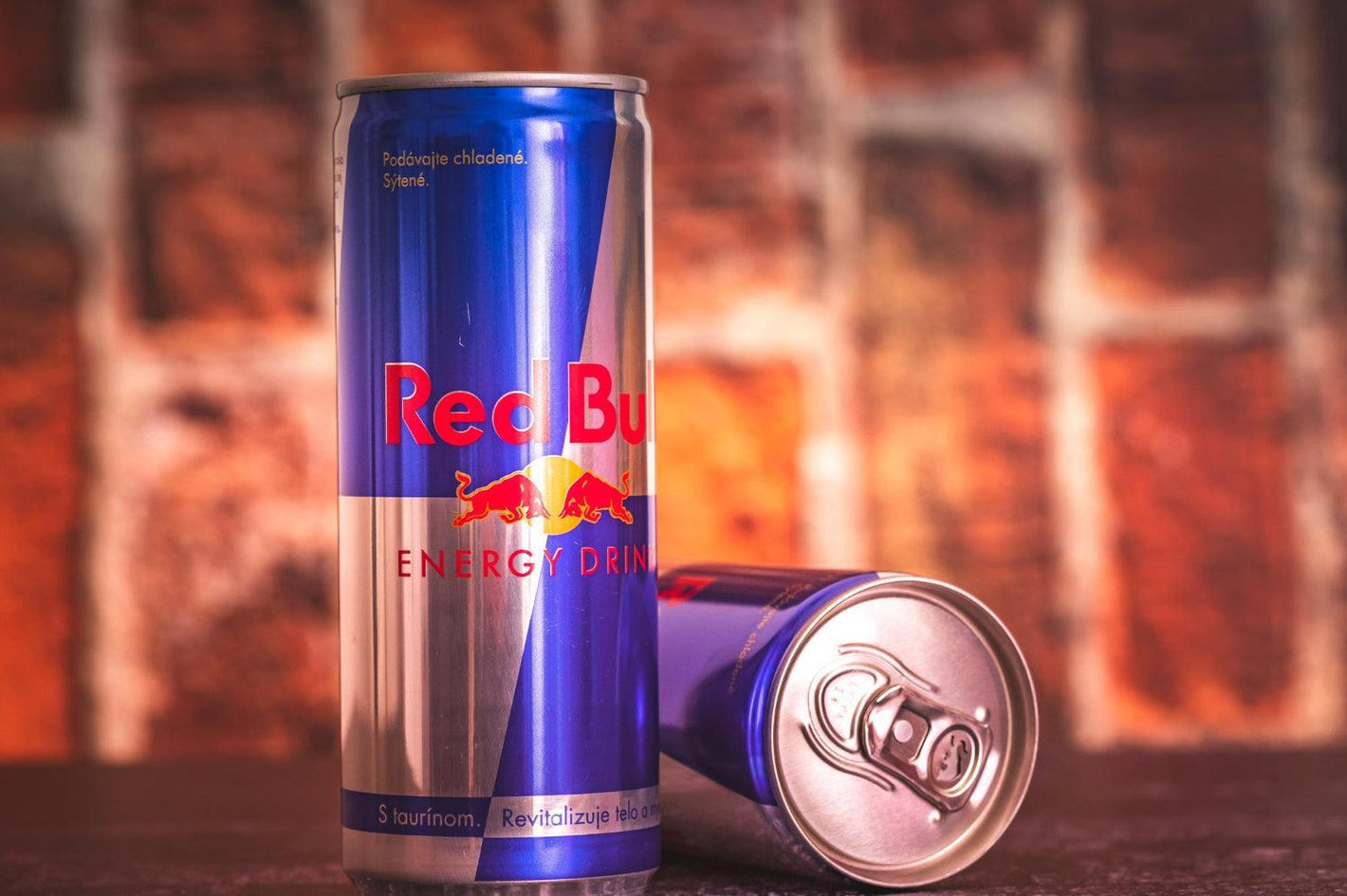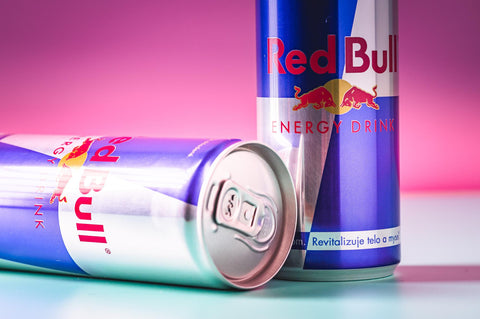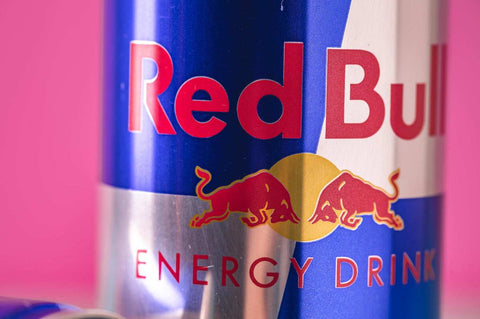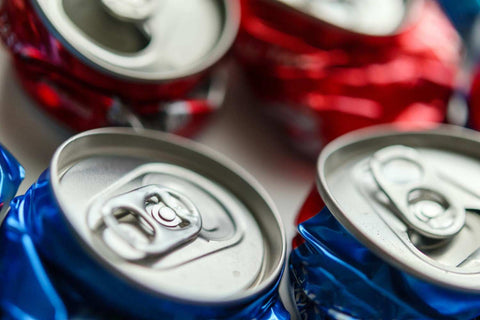Red Bull Nutrition Facts


Red Bull, a brand synonymous with energy and vitality, has ingrained itself deeply into the fabric of modern culture. Launched in Austria in 1987, it has since soared in popularity, becoming a staple in the energy drink market. This meteoric rise can be attributed to its aggressive marketing and association with extreme sports, youth culture, and high-energy lifestyles. As Dr. Emily Roberts, a renowned nutritionist, aptly puts it, "Red Bull has become more than just a drink; it's a cultural phenomenon."
The core purpose of this article is to meticulously dissect the nutritional components of Red Bull and explore the associated health implications. With a growing consumer base, understanding the impact of this beverage on one’s health is imperative. According to a 2022 survey by the Global Energy Drink Association, Red Bull holds a significant share of the market, consumed by millions worldwide, highlighting the need for a comprehensive analysis of its contents and effects.
Delving into the composition of Red Bull, it becomes clear that this drink is a concoction of several ingredients, each playing a pivotal role in its overall impact. One cannot overlook the caffeine content, which is often the primary reason for consumption. As per Dr. Johnathan Hayes, a cardiologist, “The caffeine in Red Bull can significantly impact the cardiovascular system, with effects varying from person to person.” This highlights the need for a nuanced understanding of how such ingredients interact with the human body.
Another key component is taurine, an amino acid that is often mentioned in discussions about energy drinks. The inclusion of taurine in Red Bull has been a subject of numerous studies, with experts like Dr. Lisa Morton stating, “While taurine has potential benefits, its combination with caffeine and other ingredients in energy drinks warrants a closer look.” This statement underscores the complexity of assessing the health implications of Red Bull.
B-group vitamins, another vital ingredient, play a crucial role in energy metabolism. Nutrition experts emphasize the importance of understanding the quantities and effects of these vitamins in energy drinks. Dr. Roberts notes, “While B-vitamins are essential for energy production in the body, the concentration in energy drinks like Red Bull is often significantly higher than the daily recommended intake.”
The sugar content in Red Bull also merits attention, particularly given the increasing concerns over sugar consumption in modern diets. Dr. Hayes points out, “The high sugar content in regular versions of Red Bull can contribute to various health issues, including diabetes and obesity.” This concern is particularly relevant given the drink’s popularity among younger demographics, who are more susceptible to the allure of sugary beverages.
Turning to the sugar-free variants of Red Bull, the use of artificial sweeteners comes into play. While these sweeteners reduce the calorie count, their health implications are still a subject of debate among nutritionists. As Dr. Morton asserts, “Artificial sweeteners, though calorie-free, are not free from health concerns and should be consumed judiciously.”
Red Bull’s nutritional profile is a tapestry woven from various ingredients, each contributing to its overall effect on health. This article aims to unravel this tapestry, providing readers with a clear understanding of what goes into every can of Red Bull and how it affects their health. As we embark on this journey of exploration, the key theme remains the intricate balance between the benefits and potential risks associated with Red Bull consumption.
To understand the impact of Red Bull on one's diet, it is crucial to scrutinize its nutritional content. Below is a table detailing the nutritional values per 250 ml can of Red Bull, juxtaposed with the daily recommended values. This comparison offers a clear perspective on where Red Bull stands in terms of nutritional contribution to an average diet.
| Nutrient | Amount in Red Bull (250 ml) | % Daily Recommended Value |
|---|---|---|
| Calories | 110 kcal | 5.5%* |
| Total Fat | 0 g | 0% |
| Sodium | 105 mg | 4.4% |
| Total Carbohydrates | 28 g | 9.3%** |
| Sugars | 27 g | 54%*** |
| Protein | Less than 1 g | Approx. 2% |
| Caffeine | 80 mg | N/A |
| Vitamin B3 (Niacin) | 100% | 20 mg |
| Vitamin B5 (Pantothenic Acid) | 50% | 5 mg |
| Vitamin B6 | 250% | 2 mg |
| Vitamin B12 | 80% |
2.4 µg |
This table reveals that a single can of Red Bull provides a significant amount of sugar, constituting over half of the daily recommended limit for added sugars as per the American Heart Association guidelines, particularly for women. It's also a rich source of B-group vitamins, far exceeding the daily recommended values for vitamins B3, B5, B6, and B12. While these vitamins play a critical role in energy metabolism, the excessively high percentages raise questions about their necessity at such levels.
The calorie count, though moderate, combined with the high sugar content, might be a concern for individuals monitoring their calorie and sugar intake. Additionally, the caffeine content in Red Bull is noteworthy. While it's below the maximum recommended limit of 400 mg per day for most adults, it's substantial enough to warrant attention, especially for individuals sensitive to caffeine or those consuming multiple servings.
The nutritional profile of Red Bull, characterized by high sugar and vitamin levels, presents a complex picture. While it offers a quick energy boost, its high sugar content and the abundance of certain vitamins necessitate cautious consumption, particularly considering the dietary guidelines and recommended daily values. As we delve deeper into the health implications of these nutritional components, it becomes apparent that moderation and understanding one's dietary needs are key when incorporating energy drinks like Red Bull into one's lifestyle.
The health implications of Red Bull's ingredients are a subject of much debate. While Red Bull can provide a quick energy boost, its long-term health effects are a concern. Dr. Helen Carter, a nutrition expert, states, “The key to understanding Red Bull's health impact lies in analyzing its individual ingredients and their collective effect on the body.”
Caffeine
Taurine
B-group Vitamins
Red Bull uses real sugar in its standard version. The sugar content in a 250 ml can is approximately 27 grams. This high sugar level can have implications for weight gain and blood sugar regulation. Dietician Laura Jenkins remarks, “Consumers should be wary of the sugar content in energy drinks like Red Bull, as excessive sugar intake is linked to various health issues, including diabetes.”
Red Bull's sugar-free versions utilize artificial sweeteners like Aspartame and Acesulfame K. These sweeteners provide sweetness without the added calories. However, Dr. Andrews points out, “While these artificial sweeteners are approved for use and help reduce calorie intake, their long-term effects on health and metabolism are still under scrutiny.”
The ingredients in Red Bull, including caffeine, taurine, B-vitamins, sugar, and artificial sweeteners, each contribute to its overall effect. While it can offer temporary energy and focus, the high sugar content and the presence of artificial additives call for cautious consumption. Understanding the role and impact of these ingredients is crucial for making informed decisions about including Red Bull in one's diet, especially considering individual health needs and lifestyle.

The story of Red Bull is a testament to the power of branding and market innovation. The journey began in the 1980s when Dietrich Mateschitz, an Austrian entrepreneur, discovered a Thai energy drink named Krating Daeng, which inspired the creation of Red Bull. Launched in Austria in 1987, Red Bull introduced a new category in the beverage market – the energy drink. Mateschitz’s vision was not just to sell a product but to sell an experience, a lifestyle.
Red Bull’s expansion was not just about entering new markets; it was about creating a cultural shift. By the early 2000s, Red Bull had become a global phenomenon. As Dr. Sarah Johnson, a cultural anthropologist, observes, “Red Bull didn't just market an energy drink; they marketed a sense of adventure, extreme sports, and boundary-pushing experiences, resonating deeply with the youth culture.” This marketing strategy catapulted Red Bull into a league of its own, making it more than just a beverage, but a symbol of energy, youth, and rebellion.
The statistical growth of Red Bull is nothing short of remarkable. According to the 2023 Global Beverage Report, Red Bull sold over 7.9 billion cans annually, a figure that underscores its dominance in the energy drink sector. Its target demographic primarily includes young adults, athletes, and professionals who seek an energy boost to cope with their demanding lifestyles. Marketing expert Dr. Thomas Richardson notes, “Red Bull has successfully tapped into the millennial mindset, positioning itself as an essential for anyone leading an active, fast-paced life.”
This demographic skew is further evidenced by consumption patterns. A 2022 consumer survey revealed that over 60% of Red Bull consumers are between the ages of 18 and 35, a demographic known for its high energy consumption and willingness to try new products. This age group’s affinity for Red Bull can be linked to its brand image, which aligns with the values of adventure, endurance, and vitality that resonate with younger consumers.
Moreover, Red Bull’s popularity transcends traditional marketing demographics, appealing to a wide range of consumers, from college students pulling all-nighters to professionals seeking a midday pick-me-up. As Dr. Emily Roberts, a nutritionist, points out, “Red Bull has managed to create a universal appeal, making it a go-to energy drink for various segments of the population.”
The historical context and popularity of Red Bull are as much a story of strategic marketing and cultural integration as they are of the product itself. Its global market expansion and the subsequent consumption statistics reflect a deep understanding of consumer psychology and trends. As this article progresses, it’s essential to keep in mind this blend of cultural impact and marketing acumen that has made Red Bull a household name in the realm of energy drinks.
The consumption of Red Bull, like any other energy drink, comes with a spectrum of health implications that vary from short-term effects to potential long-term consequences.
Energy Boost and Alertness: The most immediate effect of consuming Red Bull is a noticeable increase in energy and alertness, primarily due to its caffeine content. Dr. Simon Patel, a general practitioner, notes, “Caffeine stimulates the central nervous system, providing a temporary boost in energy and concentration levels.”
Potential Side Effects: However, these benefits can come with side effects. Some individuals may experience jitteriness, increased heart rate, and elevated blood pressure. Nutritionist Laura Jenkins adds, “Individual tolerance to caffeine varies, and in some, even a small amount can induce anxiety and disrupt sleep patterns.”
Risk of Chronic Diseases: Regular consumption of high-sugar drinks like Red Bull can increase the risk of obesity, type 2 diabetes, and heart disease. Cardiologist Dr. Marcus Andrews points out, “The high sugar content, when consumed frequently, can lead to insulin resistance and weight gain, exacerbating the risk of chronic health conditions.”
Dependence and Other Health Issues: There is also the risk of caffeine dependence. Dr. Patel warns, “Regular intake of caffeine can lead to dependence, where more is needed to achieve the same effects, and withdrawal symptoms can occur if intake is reduced suddenly.”
Effects on Adolescents: Adolescents are a major consumer group for energy drinks like Red Bull. Pediatrician Dr. Emily Thompson cautions, “Adolescents are particularly susceptible to the effects of caffeine and sugar. Excessive consumption can impact their developing brains, disrupt sleep patterns, and contribute to behavioral changes.”
Pregnant Women: For pregnant women, the high caffeine content in Red Bull is a concern. Obstetrician Dr. Sarah Hamilton advises, “Pregnant women are generally advised to limit their caffeine intake, as excessive consumption is linked to increased risks of miscarriage and low birth weight.”
Individuals with Pre-existing Health Conditions: People with certain health conditions, such as heart disorders, hypertension, or diabetes, should be particularly cautious. Dr. Andrews explains, “For these individuals, the stimulant effects of caffeine and the high sugar content can exacerbate existing conditions.”
While Red Bull can offer short-term benefits like increased energy and alertness, its regular consumption raises concerns regarding long-term health risks, particularly chronic diseases and dependence. Additionally, specific populations such as adolescents and pregnant women may face heightened risks. It’s essential for consumers to consider these implications and their personal health circumstances when choosing to consume energy drinks like Red Bull.
The rise in popularity of energy drinks like Red Bull has not been without controversy. These beverages, often loaded with caffeine and sugar, have been at the center of health concerns and regulatory debates across the globe.
Health Concerns: One of the primary controversies revolves around the potential health risks associated with energy drinks. Incidents of caffeine overdose and related health emergencies have raised alarms. Cardiologist Dr. Marcus Andrews states, “There have been cases where excessive consumption of energy drinks has led to heart problems, seizures, and in rare instances, fatalities.”
Targeting Young Consumers: Another contentious issue is the marketing strategies of energy drink companies, which often target young and impressionable audiences. Pediatrician Dr. Emily Thompson expresses concern, “The aggressive marketing of energy drinks to adolescents, who are particularly vulnerable to caffeine’s effects, is a significant public health concern.”
Misuse and Mixing with Alcohol: The trend of mixing energy drinks with alcohol poses additional risks. Dr. Simon Patel, a general practitioner, warns, “Combining Red Bull with alcohol can mask the depressant effects of alcohol, leading to increased risk-taking and reduced perception of intoxication.”
The response to these controversies has varied significantly across countries, reflecting diverse approaches to regulating energy drinks.
United States: In the U.S., the Food and Drug Administration (FDA) regulates energy drinks as dietary supplements. Dr. Laura Jenkins, a nutritionist, notes, “The FDA has set caffeine limits for sodas, but not for energy drinks, leading to higher caffeine levels in products like Red Bull.”
European Union: The European Food Safety Authority (EFSA) has conducted comprehensive reviews on the safety of energy drinks. As a result, products in the EU must carry warnings about high caffeine content and are not recommended for children or pregnant or breastfeeding women.
Other Regions: In some countries like Norway, Uruguay, and Turkey, Red Bull and similar energy drinks have faced bans or restrictions, particularly for minors. “These countries have taken a more cautious approach, citing health risks associated with high caffeine and sugar levels,” explains Dr. Patel.
Labeling and Advertising Regulations: Many countries now enforce stricter labeling and advertising regulations for energy drinks. This includes health warnings, caffeine content disclosure, and restrictions on marketing to young people.
The controversies and regulatory issues surrounding Red Bull and other energy drinks are complex and multifaceted, involving health risks, marketing ethics, and consumer safety. These challenges have prompted varied responses from regulatory bodies worldwide, reflecting a growing awareness and concern over the impact of these beverages on public health. As the debate continues, it becomes increasingly clear that both consumers and regulators need to tread carefully in navigating the world of energy drinks.

A common question that arises in discussions about energy drinks like Red Bull is their alcohol content. It is crucial to clarify that Red Bull, as a standard energy drink formulation, does not contain alcohol. The primary components of Red Bull are caffeine, taurine, B-group vitamins, sugars, and other additives, as previously discussed.
The misconception about alcohol content in Red Bull may stem from its frequent use as a mixer in alcoholic beverages. Dr. Simon Patel, a general practitioner, explains, “Red Bull is often combined with alcoholic drinks in bars and clubs, leading to a popular but potentially risky beverage combination.” However, it is important to note that the Red Bull energy drink itself is non-alcoholic.
While Red Bull does not contain alcohol, the implications of mixing it with alcoholic beverages have been a subject of concern in the health community. Combining energy drinks like Red Bull with alcohol can create what some experts refer to as a 'wide-awake drunk' state. Dr. Laura Jenkins, a nutritionist, warns, “The stimulating effects of caffeine in Red Bull can mask the depressant effects of alcohol, leading individuals to underestimate their level of intoxication.”
This combination can lead to increased alcohol consumption and a higher likelihood of engaging in risky behaviors. Dr. Patel adds, “The concern is that individuals may consume more alcohol than they would have otherwise because the caffeine is keeping them alert and feeling less intoxicated than they truly are.”
While Red Bull itself does not contain alcohol, its common use as a mixer with alcoholic beverages raises significant health concerns. The interaction between the stimulating effects of Red Bull and the depressant effects of alcohol can lead to a dangerous underestimation of intoxication levels and increased risk-taking behaviors. This aspect of Red Bull’s use is an important consideration in discussions about its safety and impact on public health.

In light of the various aspects discussed about Red Bull, it's essential to provide consumer advice focusing on safe consumption practices and healthier alternatives for energy enhancement.
Moderation is Key: Dr. Simon Patel advises, “Limit your consumption of Red Bull to avoid excessive intake of caffeine and sugar. One can per day should be the maximum.”
Consider Your Health Status: Individuals with pre-existing health conditions, especially those related to the heart, blood pressure, or diabetes, should consult with a healthcare provider before consuming Red Bull.
Avoid Mixing with Alcohol: Given the risks associated with mixing caffeine and alcohol, it’s advisable to avoid using Red Bull as a mixer in alcoholic drinks. Dr. Laura Jenkins warns, “This combination can lead to increased alcohol consumption and risk-taking behaviors.”
Not Recommended for Certain Groups: Pregnant women, children, and adolescents should avoid consuming Red Bull. “The high caffeine and sugar content can have adverse effects on these vulnerable groups,” explains pediatrician Dr. Emily Thompson.
Read the Label: Be aware of the ingredients and nutritional information. If you are sensitive to caffeine or other ingredients in Red Bull, consider alternatives.
Natural Stimulants: Green tea and black coffee are excellent alternatives that provide caffeine with fewer additives. Nutritionist Dr. Helen Carter suggests, “These natural sources of caffeine are a healthier option, offering antioxidants and other beneficial compounds.”
Hydration and Balanced Diet: Often, fatigue is a result of dehydration or poor nutrition. “Ensuring adequate hydration and a balanced diet rich in fruits, vegetables, whole grains, and lean proteins can naturally boost energy levels,” Dr. Carter adds.
Physical Activity: Regular physical activity is a proven energy booster. Dr. Patel recommends, “Incorporating exercise into your daily routine can enhance endurance and overall energy levels.”
Adequate Sleep: Prioritizing sleep is crucial for maintaining energy levels. Dr. Jenkins advises, “Aim for 7-9 hours of quality sleep each night to help sustain natural energy throughout the day.”
Stress Management Techniques: Practices like yoga, meditation, and mindfulness can help in managing stress and improving mental energy.
While Red Bull can offer a quick energy boost, it's important for consumers to be mindful of their overall health and lifestyle choices when deciding to consume such beverages. Moderation, awareness of one’s health status, and considering healthier alternatives for energy enhancement can help in making informed and safe choices.
The short-term benefits of Red Bull, such as increased alertness and energy, are juxtaposed with potential side effects like jitteriness and increased heart rate. The long-term consumption raises concerns regarding the risk of chronic diseases, dependence, and specific health implications for vulnerable populations like adolescents and pregnant women. Furthermore, the controversies surrounding Red Bull, particularly in terms of its health risks and aggressive marketing strategies, have led to diverse regulatory responses globally.
The advice for consumers revolves around the principles of moderation, awareness of individual health conditions, and the avoidance of mixing Red Bull with alcohol. Alternatives for natural energy enhancement, including a balanced diet, adequate hydration, regular physical activity, sufficient sleep, and stress management, are recommended.
In balancing the benefits and risks of Red Bull, the final thought is one of informed choice and caution. While Red Bull can be a quick source of energy, its consumption should be carefully considered, especially in light of individual health concerns and lifestyle. The high caffeine and sugar content, along with the potential for overconsumption and misuse, necessitate a responsible approach. Consumers are advised to weigh the immediate energizing effects against the potential long-term health implications and to consider healthier, more sustainable alternatives for energy and vitality.
The analysis of Red Bull, therefore, serves as a microcosm of the broader conversation about energy drinks and their place in our diets and lifestyles. It underscores the importance of understanding what we consume and making choices that align with our health and wellbeing.










Plus get the inside scoop on our latest content and updates in our monthly newsletter.